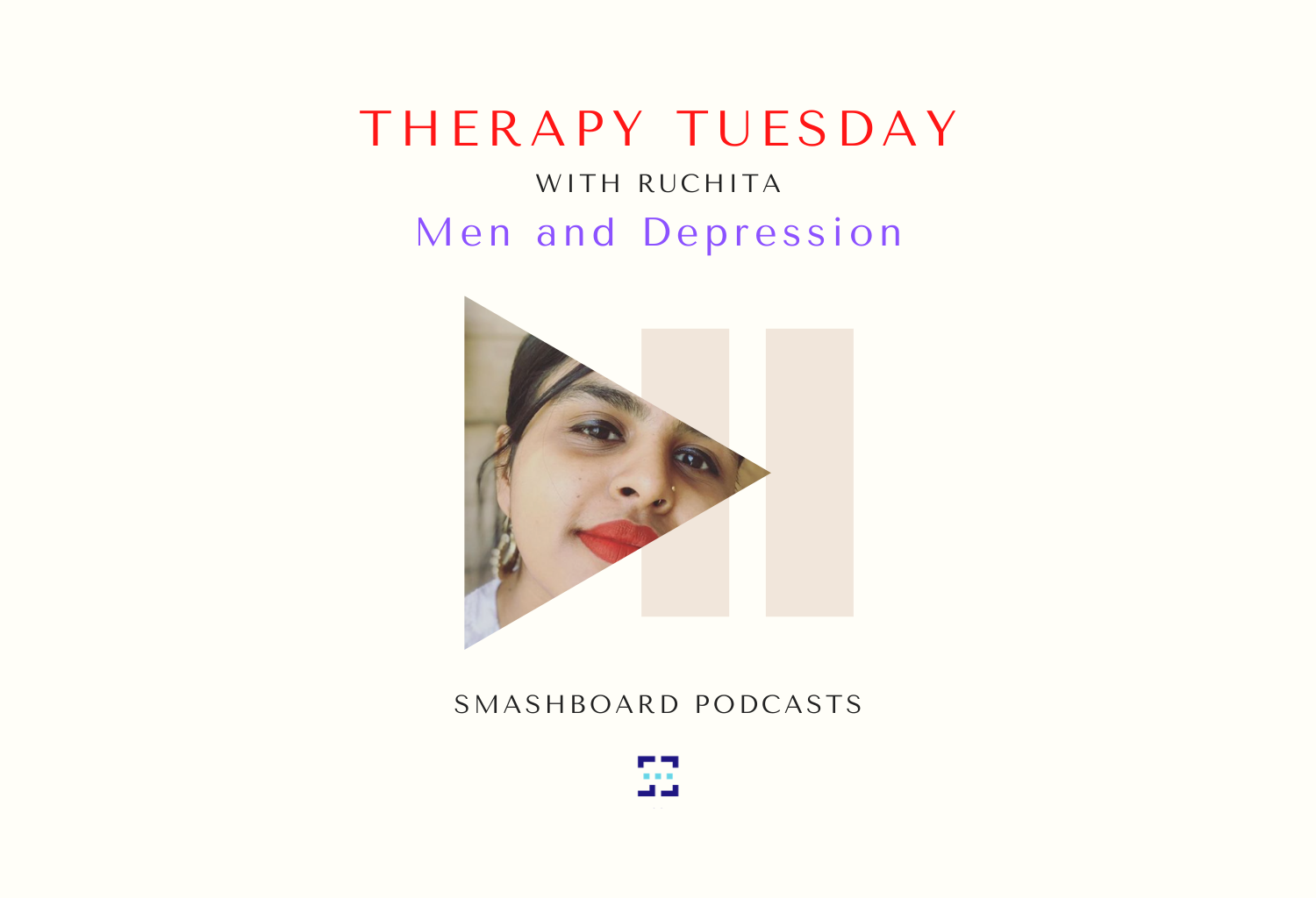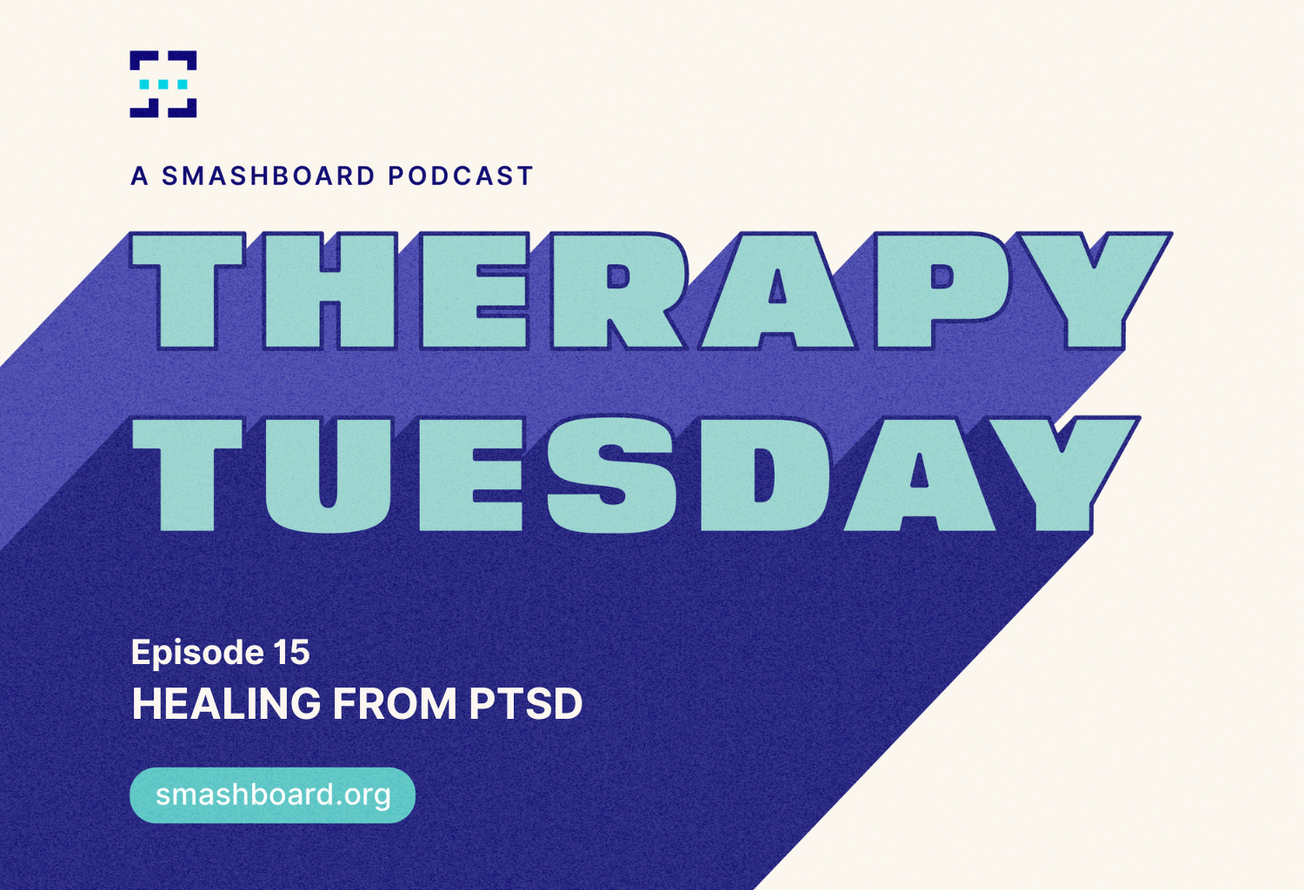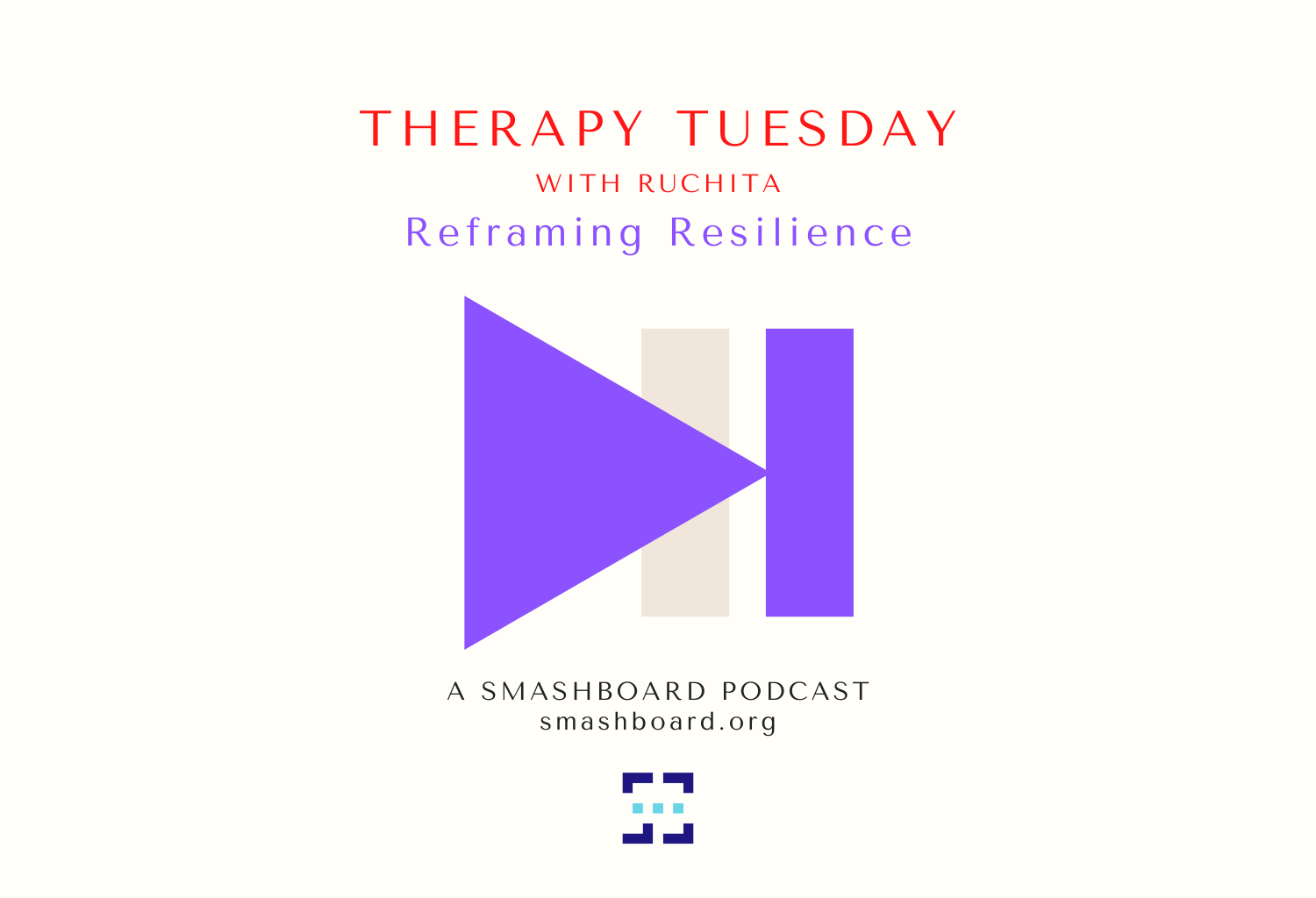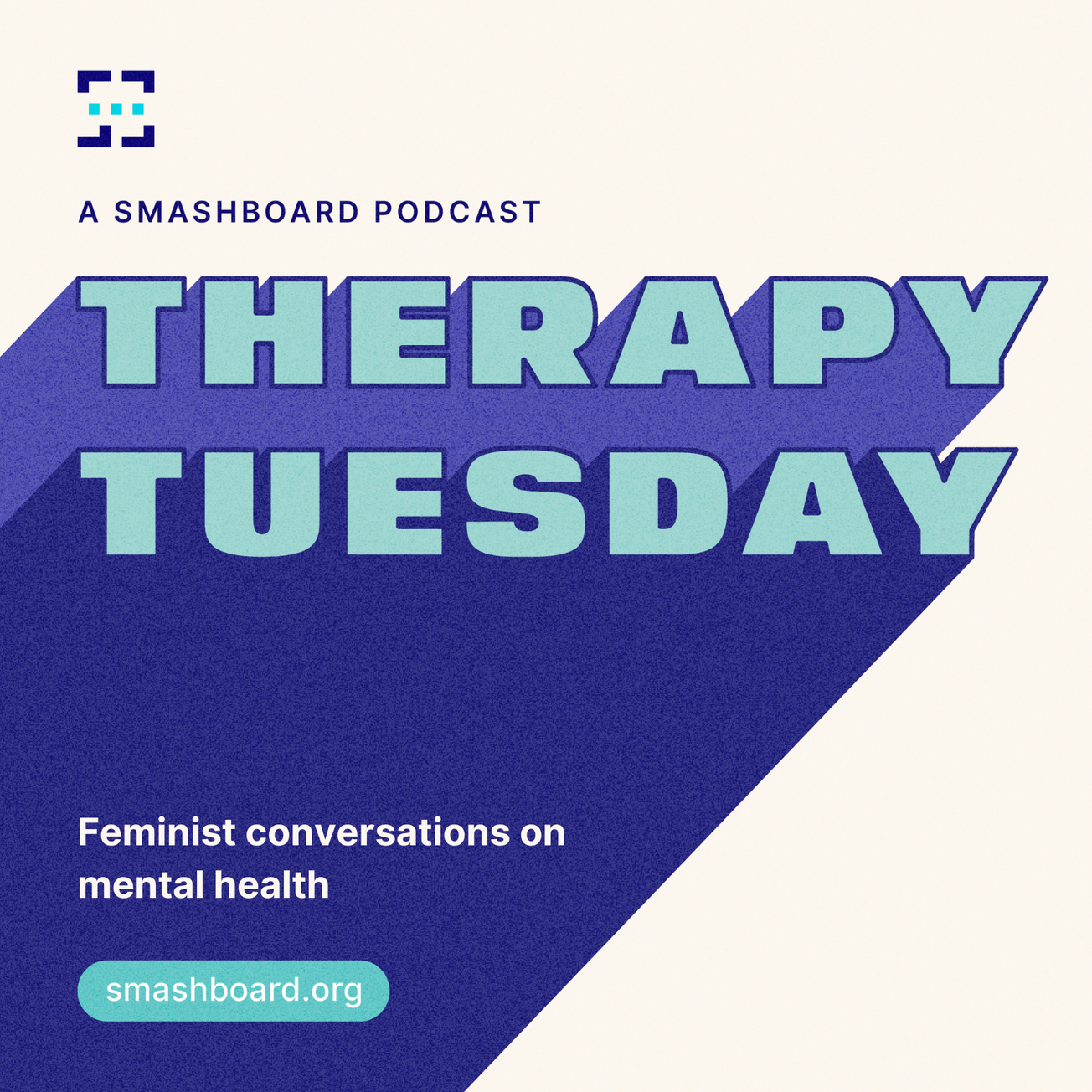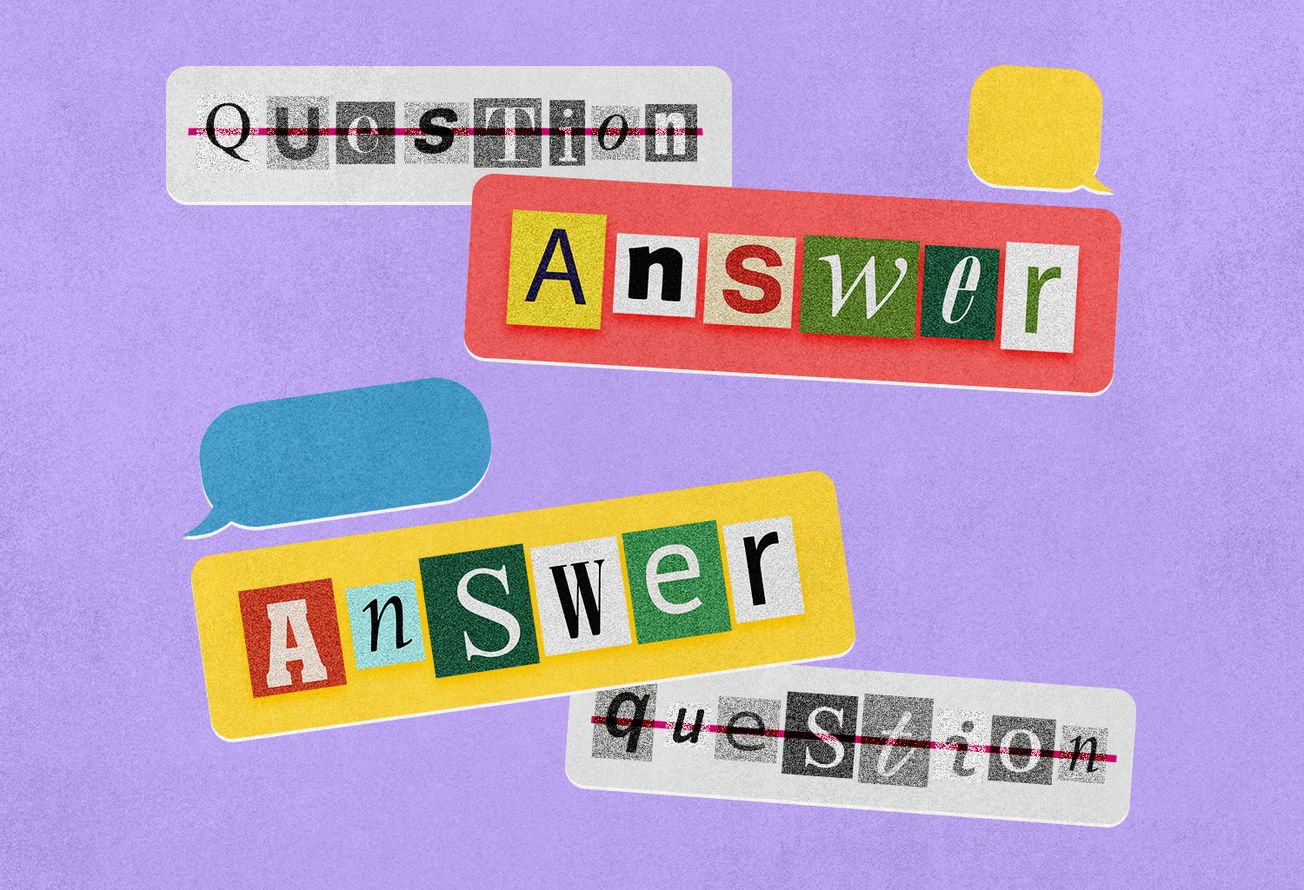Listen to our feminist mental health podcast on your favourite platform. Links here. Please do rate us! And give us a thumbs up/like/star. Have a great Tuesday!
Credits
Host: Ruchita Chandrashekar
Edit: Apurba Jyoti Borah
Audio Mix: Depot Records
Scroll down to the end for the full transcript.
APPLE PODCASTS
GOOGLE PODCASTS
SPOTIFY
FULL TRANSCRIPT OF THIS EPISODE:
Hi, this is Therapy Tuesday, Smashboard’s mental health podcast and I am your host Ruchita Chandrasekar. I am a behavioural health researcher and psychologist with a specialisation in trauma and post-violence recovery, and this podcast has been created for people who are looking to have conversations around mental health from a feminist perspective. Remember this podcast aims to be an educational resource and is not a substitute for therapy or treatment. Symptoms of mental health concerns look different in everyone, irrespective of gender; but since men are socialized in rigid ways when it comes to their emotions, psychopathology or general emotional distress can look very different as well. For example, some of the common symptoms of depression that we see is feeling sad or empty, incessant crying, loss of interest in activity, changes in appetite and sleep among others. However, often, in men, sadness or crying isn't noticed as a common symptom. Anger and irritability, on the other hand, are more common mood symptoms. So mood disorders are very common in men but often misdiagnosed or under diagnosed. I had a professor who would often say that society allows men to only experience two emotions - anger and happiness. The consequence of this can be brutal for the person but also the people around them. Sadness can look like anger, anxiety can look like anger, disappointment, jealousy, numerous stressful emotional responses can behaviorally look like anger because of how men are socialized. Think about venting, for example. It is not normalized for cis men to reach out for support, to rant about their day, or to admit that something is upsetting them. Masculinity and emotional expression are intertwined in a way where vulnerability is seen as a threat to masculinity. We see a lot of content these days that tries to challenge the 'boys don't cry' notion or tries to break gendered stereotypes about 'feelings' being a feminine thing. But generations of this kind of socialization has made cis men emotionally stunted. As a result, the weight of the emotional labour is often also placed on those around them. With feelings being a feminine burden, it starts with mothers. Women are socialized to be giving nurturers who aren't allowed to put themselves first. So with motherhood advertised as the most sacrificial job, generations of women have struggled to prioritize their needs. This makes it easier for a mother and son to have an enmeshed relationship and patriarchal entitlement also plays an instrumental role in how men aren't encouraged to take responsibility or communicate how they feel. Think about it. If you have never ridden a bike and I just hand you a bike when you're 40 and tell you that you need to travel through some tough trails, you're already set up for failure. Men are never taught to get in touch with their feelings with authenticity; they're trained to perform to societal standards of masculinity. This creates more risk to numbness, confusion, poor communication, relational distress and disruptions where men find it difficult to unlearn what's been toxically normalized for so long - they see it with their fathers, grandfathers, bosses, neighbors, uncles, everyone. It's rare that a young man will say that his father opened up to him about a childhood struggle without an ulterior motive of a lesson, or that he saw a group of men within their family structure talking about their emotional stressors. So who is shouldering the burden after the mothers? In heterosexual relationships, it's mostly partners; it's also friends, siblings, co-workers who usually hold a gender identity that's not cis-male. They become default diaries, therapists and voids in draining ways. Pop culture and media has also done a great job in romanticizing the woman who saves the man, making it completely normal for the man to act the way he wants to, and for the woman to continue to adapt and adjust to his needs. It's enabling the same tendency of maintaining and worsening the distance between men and their emotions. Women are conditioned to seek platonic intimacy from a young age and will go on to foster deep emotional relationships with their peers; men who attempt to do the same will often report that the peer intimacy they share is with other women, because gentleness and sensitivity is discouraged under the umbrella of mainstream masculinity. In fact, I remember reading a Harper's Bazaar article once that talked about something called Emotional Gold Digging - a term that a writer called Erin Rogers tweeted about in 2016. So is this unfeminist? Absolutely. But what I want to talk more about is how a lifetime of emotional stuntedness worsens isolation in men, and increases shame around their mental health concerns. If I am not taught to feel or to admit to feeling scared, sad and disappointed; how will I learn to label it as anxiety and treat it like it’s a health concern? This increases risk for substance abuse - so more consumption of alcohol, cigarettes and drugs, avoiding family or social gatherings and situations, finding it difficult to fulfill their responsibilities within the family ecosystem, feeling obsessively attached to work, increased suicidal ideation and attempting suicide, becoming controlling and abusive with relationships as well. These are some of the signs of mental health concerns in men. Now, this isn't to excuse any behavior that puts someone else in harm's way, but I often think about the need to address the cause while treating the symptoms. Do we need to hold men accountable for their actions? Absolutely. Do we need to also address the larger sociological systems that have caused these symptoms in the first place and not only impact men as individuals but also communities around them? Most definitely. The discourse around the two can co-exist. There is developmental trauma caused by the socialization of masculinity that leads to deficits in empathy, intimacy and causes a significant suppression of emotions. Psychologist Ronald Levant, who writes about and studies the construct of masculinity, coined the term Normative Male Alexithymia. Alexithymia is a term used to describe someone who has difficulty in identifying and expressing their emotions. The word normative is used to emphasize on how this is a morally endorsed ideal. Men are more likely to die by suicide than women. While outpatient therapy is an available resource, the privilege to access it is also very prevalent. We need to start educating, talking and discussing more about the problematic gendered ideals that influence the kind of people we develop into. The spotlight on strength needs to reduce and the spotlight on authenticity and vulnerability needs to increase. We need to stop policing children with their emotional expression and equip them with vocabulary that helps them understand their emotions better. We need to normalize that unlearning is a difficult and messy process. But it is an important process, because it can increase access to care, reduce the risk of mental illness, improve relationships, reduce violence in the world and even go on to break cycles of intergenerational trauma. Woke-ness may be in trend right now, but that's also a standard of performance for a new wave of masculinity. Men need to start developing safer spaces for themselves, psychoeducation needs to be focused on unlearning the violence that men have internalized towards themselves and towards the people around them. That's all I have for you on our episode today. I hope it left you with something to think about and with something to continue the discourse with. I'll see you soon on another episode of Therapy Tuesday!


